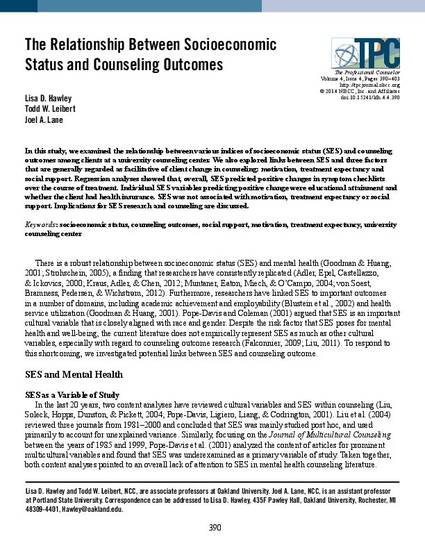
- Socioeconomic Status,
- Counseling Effectiveness,
- Counseling Services,
- School Counseling
This study examined the relationship between various indices of socioeconomic status (SES) and clinical outcomes among clients at a university counseling center. It also explored links between SES and three factors that are generally regarded as facilitative of client change in counseling: motivation, treatment expectancy, and social support. Regression analyses showed that, overall, SES predicted positive changes in symptom checklists over the course of treatment. Individual SES variables predicting positive change were educational attainment and whether or not the client had health insurance. SES was not associated with motivation, treatment expectancy, or social support. Implications for SES research and counseling are discussed.
This is the publisher's final PDF.

The article was published in the The Professional Counselor and can be found online at: http://tpcjournal.nbcc.org/the-relationship-between-socioeconomic-status-and-counseling-outcomes/